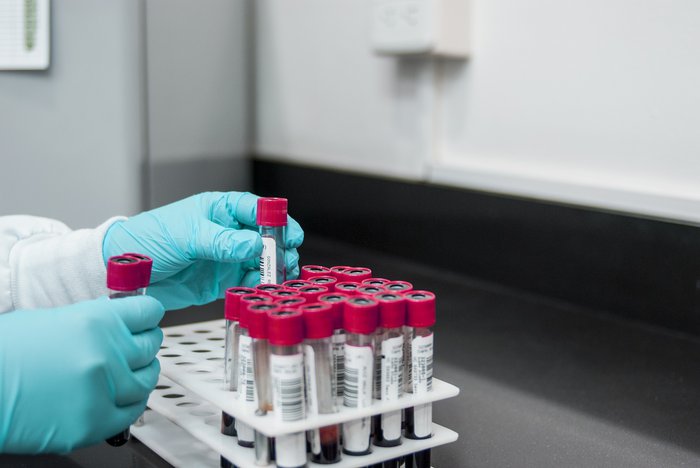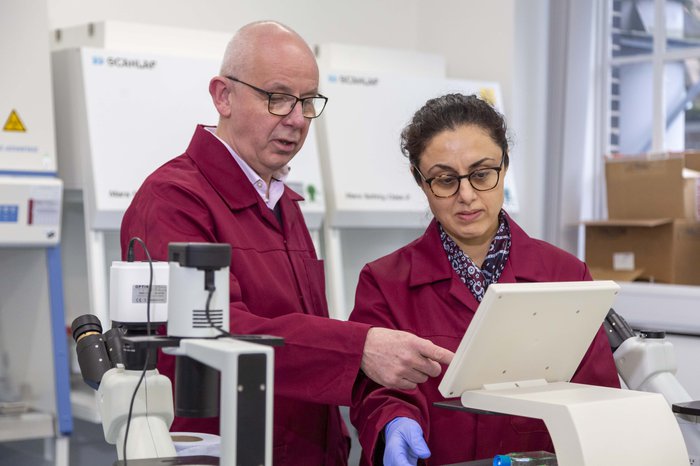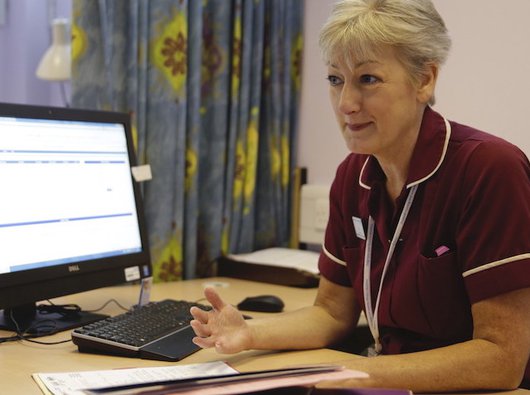What does the 10 Year Health Plan mean for people with blood cancer?
United Kingdom
Thursday (3rd July 2025), saw the UK Government publish its ambitious 10 Year Health Plan for England. Following a lengthy consultation with the public and organisations including charities like ours, it sets out the Government’s future vision of the NHS.
In our submission, we worked hard to ensure the voices of the blood cancer community were heard by Government. So, what does the published plan mean for the blood cancer community?
The Government wants to deliver three key shifts to make the NHS fit for the future.
From hospital to community
The first being “from hospital to community”, and the establishment of the Neighbourhood Health Service outlined in the Plan is aimed at bringing care into local communities.
We know people affected by blood cancer want care closer to home, and the Neighbourhood Health Service could help. But blood cancer can require extremely specialised care, which often takes place in hospital. So, we’ll be seeking further details to better understand the Neighbourhood Health Service and how those needing specialist care will be supported.

A virtual appointment at home
From analogue to digital
The second shift the Government wants to deliver is moving the NHS “from analogue to digital”- which is at the core of this Plan. We actively supported this move in our submission.
We’re pleased people will be given control through a single patient record , with all their health information in one place that can accessed by all healthcare professionals. The NHS App is also evolving to become the main access point for the NHS by 2028, offering features like booking tests, accessing advice for non-urgent issues, managing medicines, co-ordinating care and booking vaccines. In the short-term, we’ll be watching how vaccine eligibility is reflected in the NHS App, given the importance of vaccines for people with blood cancer.

The NHS App will become the main point of access for the NHS
The “My Companion” section of the NHS App will also help people articulate their needs, including a translation function so people can engage with their healthcare in their chosen language. We’re pleased technology is being harnessed to address challenges and empower patients and look forward to seeing more when it launches. Yet there remain many people who can’t use or don’t have access to a smartphone or will have worries about privacy. We’re clear that the development of the NHS App must not create new barriers to accessing healthcare.
Improving technology for the NHS workforce should also help to reduce some of the bureaucracy and administration in the system. But the core issue of workforce gaps and shortages remain and still needs to be prioritised to improve blood cancer care.
From treatment to prevention
The third shift the Government highlights is “from treatment to prevention.” While prevention is vital for many conditions and some cancers, we're concerned about what this means for blood cancers, which aren’t easily prevented through lifestyle changes.
Our community will know that a prevention focus can sometimes lead to a perception of blame when someone is diagnosed with cancer. We’re pleased technology is being harnessed to address challenges and empower patients, and look forward to seeing more when it launches. We want to ensure this focus is balanced with other measures, like identifying those at higher genetic risk and improving diagnosis for blood cancer and other non-preventable cancers.

The Government also intends clinicians to use information on genetic changes as well as liquid biopsies to aid diagnosis. he Plan anticipates at least one major breakthrough in detection technology in the next five years. This could be a multi-cancer early detection test; simple blood tests that can check for signs of many different types of cancer at once, even before symptoms appear.
We need to better understand how these new technologies will be introduced and used to improve blood cancer diagnosis and treatment.
Speeding up the development of new treatments
At Blood Cancer UK, we know research is the key to finding better and kinder treatments. The Plan sets out collaboration between Government and charities to support clinical academics. We welcome this positive step and look forward to hearing more. The Plan also aims to speed up clinical trials and apply all the recommendations made in a recent review of the clinical trial process. We’re pleased that there is a commitment to implement these recommendations and we will be following progress closely.

In our submission we also called for the streamlining of the drug approval system. From 2026, there will be a new joint process between the National Institute for Clinical Excellence (NICE) and the Medicines and Healthcare products Regulatory Agency (MHRA), responsible for regulating new drugs and technologies in England, Wales and Northern Ireland. This should result in a faster process for approving new medicines, alongside reducing the administrative burden.
Blood Cancer UK’s role in supporting the NHS
We’ve long felt that charities can play an important role in supporting the NHS, providing equitable access to knowledge, skills and support. In our submission to the Plan, we called for direct referral opportunities from the NHS to charities and we are pleased there is a commitment to partner with charities to deliver new, formal support that helps people with a new diagnosis manage their condition.
Blood Cancer UK's work with the NHS
We are already working with a number of NHS Trusts across England where healthcare professionals directly refer people newly diagnosed with blood cancer to us, so we can provide them with a weekly support email or a call from a member of our Support Service Team which covers topics like diagnosis, treatment, connecting with others and practical support.

Looking to the future
We value the Plan’s ambition, but have questions about how it’ll be delivered and resourced. Despite recent investment, NHS spending remains below the historic average. Sufficient investment is needed to strengthen NHS infrastructure which, alongside other key areas, will future-proof the NHS and improve treatment for blood cancer.
It’s a busy year for health policy in England, with the NHS Workforce Plan, National Cancer Plan and Life Sciences Plan all expected. We hope these will offer more detail on delivery, and we will continue to influence Government about the needs of people with blood cancer
As health is devolved, this Plan only applies to England. However, we continue to work on the issues raised in our submission in Scotland, Wales and Northern Ireland as well as nation specific issues. With elections coming in Scotland and Wales and new opportunities to influence in Northern Ireland, we remain active on delivering the UK Blood Cancer Action Plan across the UK.
As ever, thank you to those in our community who shared their voice and stories through the Change NHS consultation and continue to enable us to call for change.


